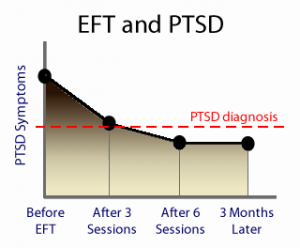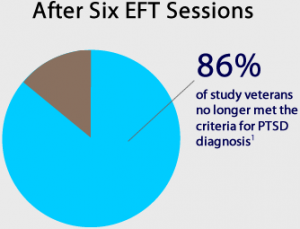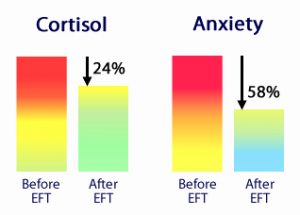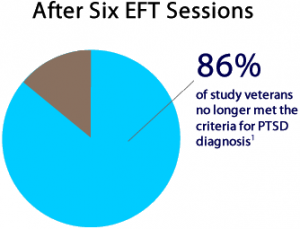
We Do Relief
Happiness. Everyone wants it because, well…it feels great! And happiness is a worthy goal—when we’re happy, we’re more resilient, we’re more productive and we have more to give to the people around us.
But it’s hard to feel happy when there’s something in the way, and that’s what Sweet Relief is all about. We help you remove your personal blocks to happiness using a ground-breaking, integrative-wellness technique called EFT tapping.
EFT, or Emotional Freedom Technique, is an innovative, evidence-based health practice that’s helped millions worldwide find happiness through relief. A form of self-acupressure that’s performed during a talk session, tapping works with the body’s nervous system to recondition our habitual response to daily challenges. When applied with the help of a trained facilitator, users are often able to make startling progress on issues they’ve been blocked on.
Ready for some relief? Meet your practitioner and learn how we get results with EFT.

Integrative Wellness Practitioner
EFT Certified Professional
Meet Your Practitioner
Dear Visitor,
Modern life is about solving problems, right?
Pipes clogged? Call a plumber. License expiring? Get it renewed. But what about when a problem is inside us? Like a fear of flying or a desire to overeat?
The common wisdom is to reason with ourselves, use logic to set ourselves straight. If that doesn’t work, we’re supposed to talk about the problem with others. But logic and talking often fail, because some of our problems simply run too deep. They’re not just mind problems, they’re mind-body problems. They’re heart-and-soul problems.
We’ve been needing a better tool. And friends, I’m excited to tell you…that tool is here!
EFT—or Emotional Freedom Technique—is a powerful, holistic new way to resolve inner problems and bring us the happier life we’ve been waiting for. It’s fast, it’s effective, and when done right, it feels like relief—like a cloud’s been lifted or a weight removed.
I’ve helped dozens of people overcome their challenges—many of which they’d been carrying for years—and I’d love to help you, too.
So come, tell me your problem. I can’t wait to see the smile on your face when you’re free of it!
With Much Warmth,
![]()
JennMarie Diaz

Integrative Wellness Practitioner
EFT Certified Professional

At Sweet Relief, we stand by our name! If you don't get real relief from your sessions with us, we'll gladly refund your money.
READ FULL DETAILS



Get Results With EFT Tapping
Running water…the printing press…Netflix. Every so often, humans find a way to make life better. We’ll be struggling along with the same old clunky approach and then, BAM!—innovation. And that’s what EFT tapping is—in the realm of inner problems, it’s the innovation of the century.
A special type of acupressure, tapping has earned a reputation as one of the fastest and easiest ways to address personal challenges. All over the globe, people are using it to find life-changing relief, from problems ranging from cravings and fears to allergies and anxiousness.
And scientific support for the method is mounting.
Take PTSD:
PTSD, or post-traumatic stress disorder, is one of the most difficult problems of our time, causing disabling symptoms in people exposed to extreme circumstances—people like war veterans. In a 2013 study that tested EFT tapping with veterans, 86% of those who received six EFT sessions dropped from the category of clinical (severe) PTSD to no longer meeting the diagnostic criteria for the disorder.1
In other words, 86% of the EFT group got better. And their results were maintained at the 3-month followup.


PTSD is a complex, hard-to-treat phenomenon and this EFT study provided one of the BEST outcomes for PTSD obtained in a clinical trial of any therapy to date. The study was a randomized, controlled trial and was published in the prestigious Journal of Nervous and Mental Disease, the oldest peer-reviewed psychiatry journal in North America.
What’s more, following positive results in dozens of high-quality research studies, a 2012 article published in Review of General Psychology—the official journal of the American Psychological Association (APA)—concluded that EFT tapping meets the APA’s criteria for “evidence-based practice” for a number of psychological conditions, including PTSD, anxiety, phobias and depression.2
Other promising areas of research include EFT for physical pain,4 fibromyalgia,5 autoimmune conditions like allergies and asthma,6,7 and for reducing the side effects of chemotherapy during cancer treatment.8
Although EFT tapping is an integrative wellness practice and not a form of psychotherapy or specific treatment for disease, currently over one hundred scientific studies have been published documenting EFT-related outcomes in the lives of human participants.
The physical “how” of Eastern-based health practices like EFT are not as well documented as their results. However, several studies have measured the method’s health-supportive effects in Western medical terms, for example, its ability to lower cortisol levels in humans910 (see Figure 3). Cortisol—a hormone—is an important bio-marker of stress, and when it’s too high for too long, it can wreak havoc on the body as well as the mind.11

How EFT Tapping Works
EFT stands for Emotional Freedom Technique and the method is referred to as “tapping” because a special form of self-acupressure is key to its effectiveness. In combination with recall and inner sensory techniques, the acupressure allows users to effectively “hack” their own stress response, freeing them from counter-productive patterns and unpleasant reactions.
Stress is a normal part of everyday life, but when it goes unresolved, it can lead to unwanted behaviors and long-term unhappiness. Because our response to stress is complex—occurring simultaneously on physical, mental and emotional levels—stress-related issues can be difficult to address.
Happily, EFT tapping often succeeds where other strategies fail. An integrative approach to wellness, it is based on the Chinese meridian system—the same holistic health methodology that underlies acupuncture, acupressure, tai chi and qigong. EFT is practiced by millions of people world-wide12 for help with a vast array of issues, including:
- Anger
- Anxiousness
- Bullying
- Cravings
- Headaches
- Hyperactivity
- Shyness
- Impulsiveness
- Relationships
- Weight loss
- Weight gain
- Inner conflict
- Prolonged sadness
- Problem solving
- Food sensitivities
- Parenting stress
- Health stress
- Public speaking
- Disturbing events
- Sports performance
- Professional performance
- Blood-pressure support
- Repetitive-type injuries
- Circulation issues
- Compulsive tendencies
- Self-limiting beliefs
- LGBTQ issues
While there is a growing body of research validating the usefulness of Clinical EFT in addressing mental and physical illness, the approach is considered experimental as a treatment and should not be relied on to diagnose, treat or cure any disease or psychological disorder. Furthermore, it is important you understand that the coaching context is not equivalent to licensed health care and Sweet Relief practitioners cannot provide you with medical, psychological, or psychiatric care.
That said, EFT tapping is a powerful tool for your stress-relief and personal-development kit, especially when applied with the help of an experienced professional. It can free you from stubborn problems, help you achieve your goals, and connect you with the happiness you’ve been missing in your life.
Ready to start? Book a session! Or to learn more, check out our FAQ page.
References:
1. Church, D., Hawk, C., Brooks, A. J., Toukolehto, O., Wren, M., Dinter, I., & Stein, P. (2013). Psychological trauma symptom improvement in veterans using EFT (Emotional Freedom Techniques): A randomized controlled trial. Journal of Nervous and Mental Disease, 201(2), 153-160.
2. Feinstein, D. (2012). Acupoint stimulation in treating psychological disorders: Evidence of efficacy. Review of General Psychology, 16(4), 364-380.
3. Church, D., & Nelms, J. (2016). Pain, range of motion, and psychological symptoms in a population with frozen shoulder: A randomized controlled dismantling study of Clinical EFT (Emotional Freedom Techniques). Archives of Scientific Psychology, 4(1), 38-48.
4. Ortner, N., Palmer-Hoffman, J., & Clond, M. A. (2014). Effects of Emotional Freedom Techniques (EFT) on the reduction of chronic pain in adults: A pilot study. Energy Psychology: Theory, Research, and Treatment, 6(2), 14–21.
5. Brattberg, G. (2008). Self-administered EFT (Emotional Freedom Techniques) in individuals with fibromyalgia: A randomized trial. Integrative Medicine, Aug/Sep, 30-35.
6. Babamahmoodi, A., Arefnasab, Z., Noorbala, A. A., Ghanei, M., Babamahmoodie, F., Alipour, A., …Darabi, H. (2015). Emotional Freedom Technique (EFT) effects on psychoimmunological factors of chemically pulmonary injured veterans. Iranian Journal of Allergy, Asthma and Immunology, 14(1), 37.
7. Hodge, P. M., & Jurgens, C. Y. (2011). Psychological and physiological symptoms of psoriasis after group EFT treatment: A pilot study. Energy Psychology: Theory, Research, and Treatment, 3(2), 13-23.
8. Baker, B. Hoffman, C. (2014). Emotional Freedom Techniques (EFT) to reduce the side effects associated with tamoxifen and aromatase inhibitor use in women with breast cancer: A service evaluation. European Journal of Integrative Medicine, 7(2), 136-14.
9. Church, D., Yount, G., & Brooks, A. J. (2012). The effect of Emotional Freedom Techniques (EFT) on stress biochemistry: A randomized controlled trial. Journal of Nervous and Mental Disease, 200(10), 891-896.
10. Bougea, A. M., Spandideas, N., Alexopoulos, E. C., Thomaides, T., Chrousos, G. P., & Darviri, C. (2013). Effect of the Emotional Freedom Technique on perceived stress, quality of life, and cortisol salivary levels in tension-type headache sufferers: A randomized controlled trial. Explore: The Journal of Science and Healing, 9(2), 91-99.
11. Mayo Clinic (2016, April 21). Chronic stress puts your health at risk. Retrieved from https://www.mayoclinic.org/healthy-lifestyle/stress-management/in-depth/stress/art-20046037.
12. Church, D. (2013). Clinical EFT as an evidence-based practice for the treatment of psychological and physiological conditions. Psychology, 4(8), 645-654.
